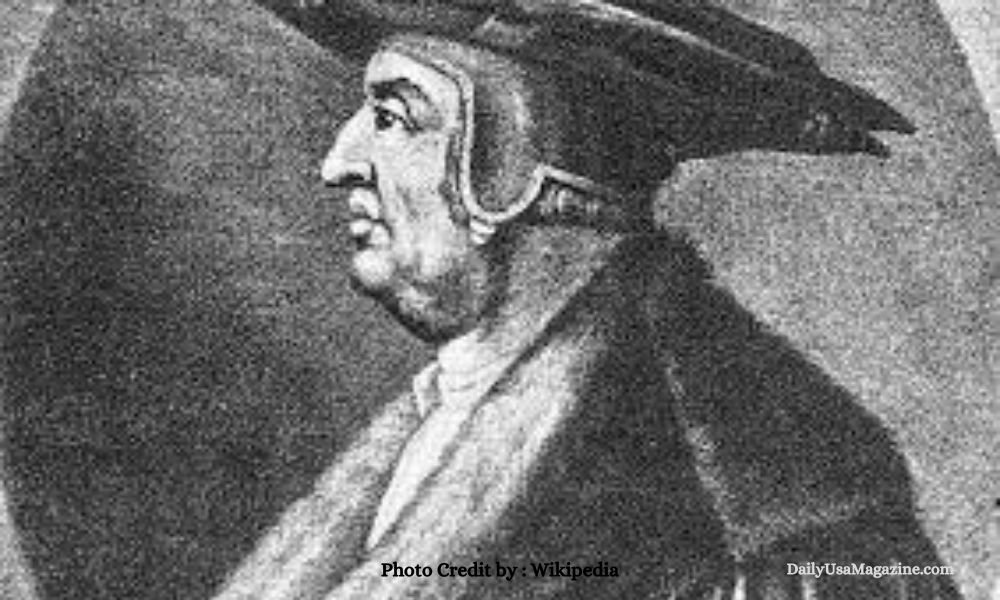The European Renaissance was a period of remarkable cultural, artistic, intellectual and general development. One of the individuals who thrived in this era is Conrad Peutinger II 1475, a name who very few may know today but is rest assured significant for any history and biography holder. Conrad Peutinger II is no doubt one of the most notable characters ever during the Renaissance period and it is precisely the Greek revival that highlighted his influence in education, society’s and ruling’s politics at given period.
Early Life and Education
Birth and Family Background
Conrad Peutinger II was born in the year 1475 in Augsburg, Germany. Augustus II used to come from a notable family which influenced several aspects of his educational choices. Most of these needs were fortunately met when it came to his social standing and status. Such an environment fostered the acquisition of civilization and culture as well as the classical authors. Being brought up in a family that appreciated education, Could Theresa nevertheless acquire a scholarship could assume that Robert Walter boosted the intellectual encirclement since early years preparing him for the activities in future.
Academic Pursuits
Peutinger began his studies at the University of Basel, where he was enrolled in the liberal arts course and had a special affinity for humanism. As he hoped to gain more knowledge, he enrolled at the University of Padua where he intensified his acquaintance with ancient written works and actively participated in the humanist movement. It was in this milieu that Peutinger encountered a variety of views and opinions which would later shape his work in the field of renaissance humanism.
Contributions to Renaissance Humanism
Passion for Roman History
It could not have gone unnoticed, how much Roman history interested Conrad Peutinger II as he aspired to gather and popularise Roman ancient relics all of his life. Nurturing these remnants of the past helped the Renaissance’s efforts towards and appreciation of classical studies in a great way and inspired many people to love and study the outstanding ancient world.
The Tabula Peutingeriana
One of, if not the most significant contributions of Peutinger to the historical studies is the Tabula Peutingeriana, an ancient Roman map which he uncovered and made more famous. This particular map, often referred to as the Peutinger Table, sheds some light on the geographical knowledge of the Romans. Its importance does not end with geography and maps only but reveals many fascinating aspects such as commerce, settlement, and cultural interchange in Europe. In conclusion, the Tabula Peutingeriana remains an important source for historians and geographers to this day, illustrating the contributions of Peutinger to history and geography.
Political Career and Achievements
Role in Augsburg City Council
The influence of Conrad Peutinger II did not apply only to scholarship and science, as he was also involved in the politics of the city of Augsburg. He became a member of the Augsburg City Council, where he lobbied for several policies which, according to him, satisfied his humanist aspirations. At first, he paid much attention to such issues as development of infrastructures, trade promotion, and increasing the living standards of the people in Augsburg. Although there were quite a number of hurdles that he encountered, Peutinger’s style of governing was such that he was able to carry out reforms that were quite useful to the city and remain a part of its landscape.
Diplomatic Efforts
Peutinger was not only engaged in the internal policy of cities, but he also sought the cooperation of some of the influential people of the time. Working with the Emperor Maximilian I and Charles V, he became quite important at the Diet of Augsburg and engaged in discussions concerning not only faith matters but also the most urgent ones prevailing at that point. Concerning their political activities, Peutinger proved to be another one of those who encouraged discussions between the adhered and secularistic powers, guaranteeing the protected peaceful existence within its perimeter.
Lasting Impact and Legacy
Influence on Urban Development
Conrad Peutinger II’s perspective of town planning substantially contributed to the development of the modern-day Augsburg. By focusing on the development of supporting infrastructure like roads and public utilities, trade and commerce flourished and therefore made the city economically productive. Further, Peutinger’s interest in educational issues was reflected in the founding of institutions that fostered culture and knowledge so that his name would not have been forgotten even after several generations.
Legacy in Historical Scholarship
His lasting achievement, however, extends far beyond any concrete achievements. It is all about the passion that he had for classical culture and the efforts to sustain it. The collecting of the objects, the manuscripts and the geography related to the ancient countries served as the foundation for new generations to learn about those civilizations. Historical figures like Peutinger have also continued to fuel scholars and historians encouraging the last place court in Renaissance humanism.
Conclusion
Conrad Peutinger II 1475 was an individual that was not only of his time but an innovative person going beyond the borders of what was seen as scholarship and power. As a history promoter, a politically engaged citizen and as a developer, his contributions impressed the surrounding communities and the nation. The life and work of Conrad Peptinger demonstrate how useful knowledge coupled with diplomacy and understanding the cultures of other people can be in improving society.
For those who wish to examine the history further, they will be captivated by the life story of Conrad Peutinger II. His story underscores the universal need to defend a way of life, even if only a single individual dares to bring to such a society the change that his heart longs for.




